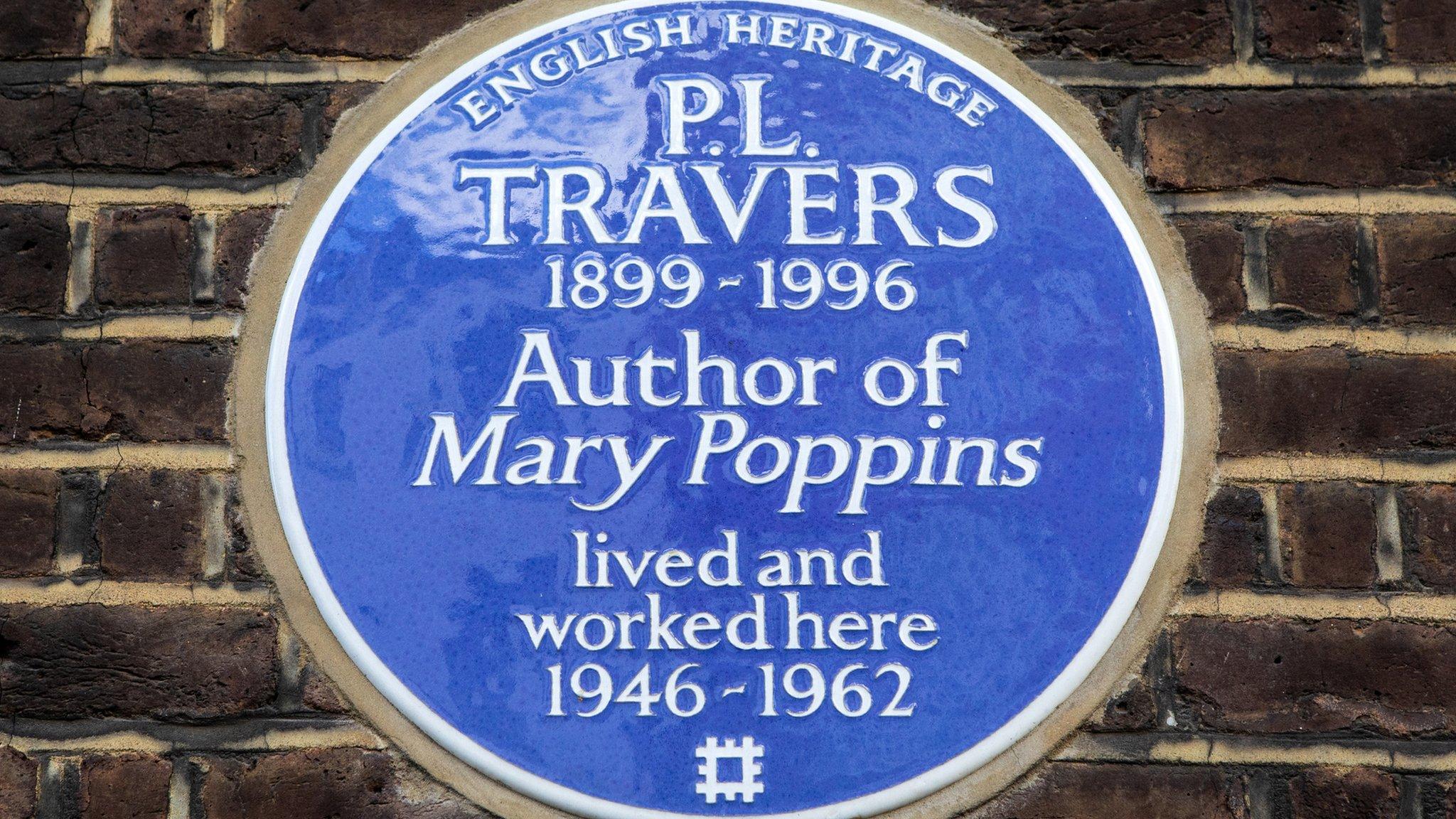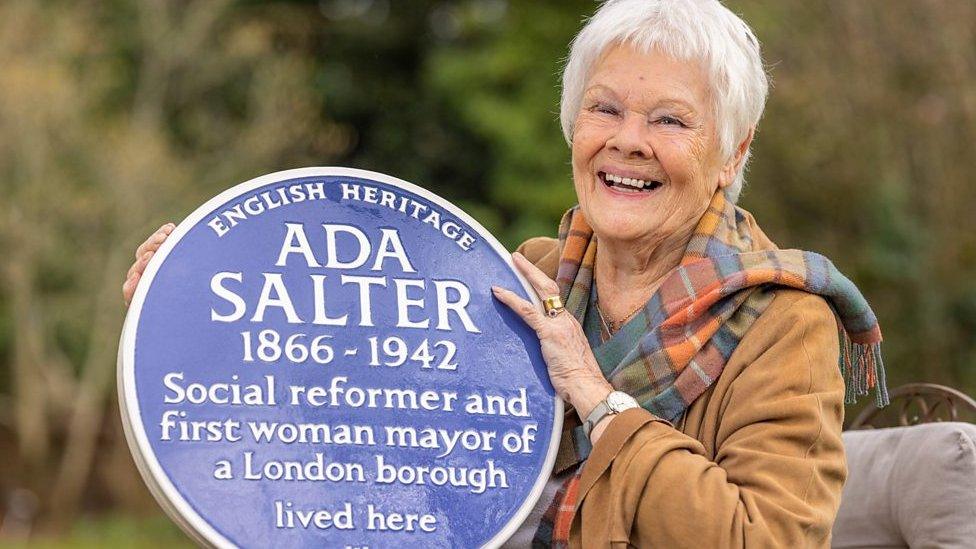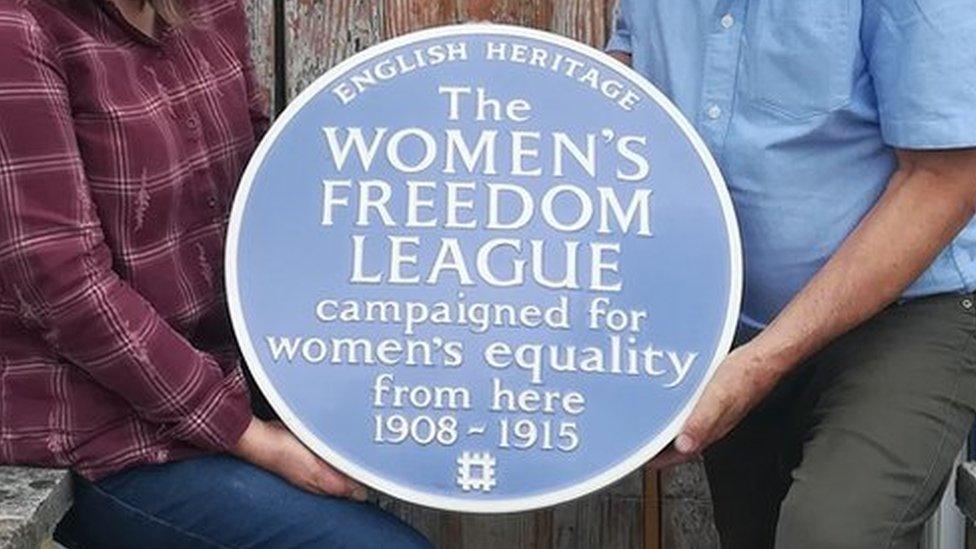Joan Robinson: Economist remembered with blue plaque in Notting Hill
- Published

Joan Robinson has been described as "one of the most influential theorists of her time"
An economist described as "one of the most influential theorists of her time" has had a blue plaque erected on her former west London home.
Joan Robinson has been recognised with a plaque at 44 Kensington Park Gardens in Notting Hill.
She lived at the address with her parents and sisters from 1919.
While living there she volunteered to help unemployed people during the post-war depression - which was pivotal in her decision to study economics.
Howard Spencer, senior blue plaque historian, described Robinson as a "trailblazer" for women in the economic field.
"She was no shrinking violent, she was really quite a formidable antagonist," he said.
"[Robinson] didn't want to be known as a woman economist."
He added that English Heritage hoped the simple inscription on her plaque would encourage people to find out more about her work.

The plaque has been erected at 44 Kensington Park Gardens in Notting Hill
Born Joan Violet Maurice on 30 October 1903, she studied economics at Girton College, Cambridge, but was not permitted to formally graduate, as was the case for all women at Cambridge until 1948.
She was a strict vegetarian, and slept in an unheated shed, open at one side, at the bottom of her Cambridge garden.
In July 1926, she married fellow economist Austin Robinson and two months later, they travelled to India which sparked her lifelong interest in developing economies.
The couple returned to Cambridge in 1928 and had two daughters, Ann and Barbara.
Robinson began publishing articles on economics in the early 1930s and was recognised internationally for her first book, Economics of Imperfect Competition, in 1933.
She continued to publish throughout her career and in 1949, was promoted to Reader at Cambridge. She became a professor in 1965.

Joan Robinson lived in Notting Hill with her parents and sisters
She became a Fellow of Newnham College in 1962 and was the first honorary Fellow of King's College in 1979.
Robinson was described by Chambers Biographical Dictionary as "one of the most influential economic theorists of her time".
She retired in 1971 but continued to work for about a decade.
After slipping on ice, Robinson spent several months in a coma, and died on 5 August 1983.

Listen to the best of BBC Radio London on Sounds and follow BBC London on Facebook, external, X, external and Instagram, external. Send your story ideas to hellobbclondon@bbc.co.uk, external
Related topics
- Published12 January 2024

- Published23 September 2023

- Published19 September 2023
